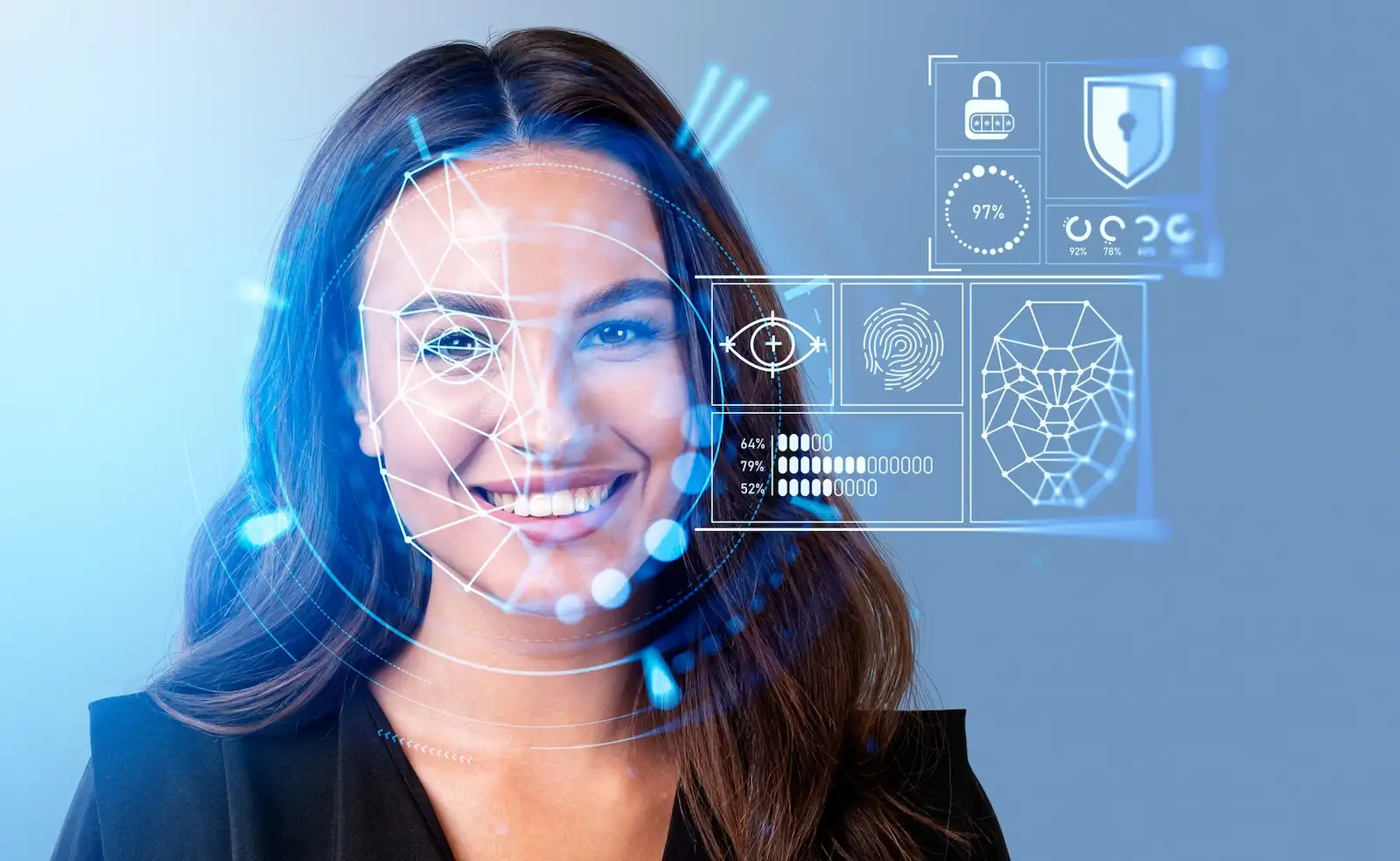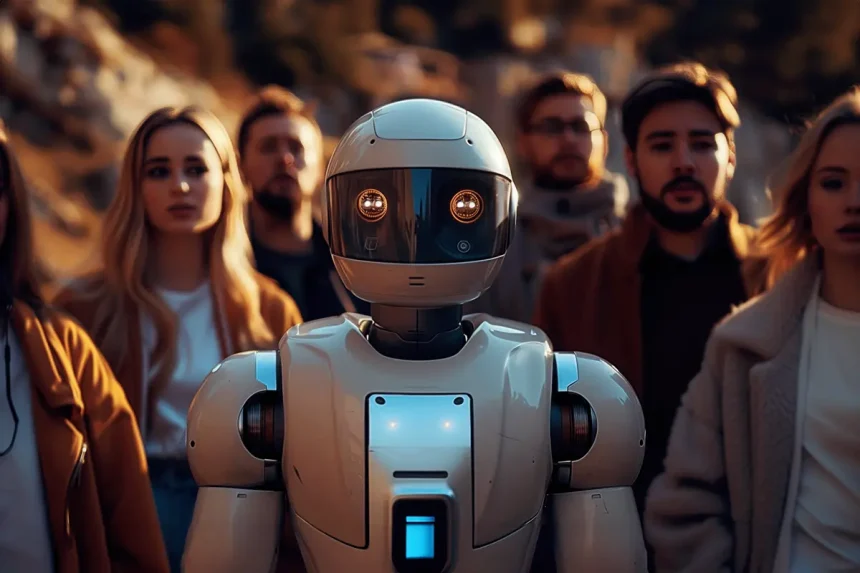Imagine a world where your face is your ultimate password, unlocking not just your smartphone, but your home, your car, and even your bank account. Sounds convenient, right? Now imagine that same face being tracked, analyzed, and stored by countless cameras and devices without your knowledge or consent. Welcome to the brave new world of facial recognition technology, where the line between cutting-edge convenience and dystopian surveillance is blurrier than ever.
- The Biometric Revolution: Convenience at What Cost?
- The Algorithmic Gaze: Bias in the Machine
- Data Security: When Your Face is on the Dark Web
- Consent in the Age of Ubiquitous Surveillance
- The Regulatory Puzzle: Taming the Facial Recognition Wild West
- The Future of Facial Recognition: Ethical Innovation or Orwellian Nightmare?
As this technology rapidly infiltrates our everyday gadgets, from smartphones to smart doorbells, we’re faced with a moral minefield that challenges our notions of privacy, consent, and personal freedom. It’s time to take a hard look at the face staring back at us from our screens and ask: at what point does innovation cross the line into invasion?
Overview:
- Facial recognition in consumer products offers unparalleled convenience but raises significant privacy concerns.
- Algorithmic bias in facial recognition systems perpetuates social inequalities.
- Data breaches involving biometric data pose unique and severe risks.
- Consent and transparency are crucial yet complex in the era of ubiquitous facial recognition.
- Regulatory frameworks struggle to keep pace with rapid technological advancements.
The Biometric Revolution: Convenience at What Cost?
Gone are the days when remembering a complex password was your biggest tech headache. Now, your face is your key to the digital kingdom. From unlocking your iPhone with a glance to sailing through airport security, facial recognition is revolutionizing how we interact with technology. But as we trade our passwords for our facial features, are we unknowingly signing away our privacy?

The numbers tell a sobering story. According to a Pew Research Center survey, a staggering 60% of Americans believe it’s unacceptable for the government to use facial recognition technology to monitor public spaces. Yet, many of us willingly hand over our biometric data to tech companies without a second thought.
The surveillance capitalism model underlying facial recognition poses significant ethical challenges
warns Shoshana Zuboff, a leading voice in digital ethics
But let’s not kid ourselves – facial recognition isn’t all doom and gloom. It’s a powerful tool that can enhance security, streamline processes, and even aid in medical diagnoses. The question is: at what point does convenience become complicity in our own surveillance?
As we navigate this biometric brave new world, we’re faced with a fundamental question: Are we willing to trade our anonymity for the promise of a frictionless digital experience? Or is it time to put on our poker face and demand stronger privacy protections?
The Algorithmic Gaze: Bias in the Machine
Now, let’s tackle the elephant in the room – or should I say, the bias in the algorithm. Facial recognition technology isn’t just watching us; it’s judging us, and not always fairly. The unsettling truth is that many facial recognition systems exhibit alarming levels of bias, particularly against people of color and women.
The numbers are stark and sobering. Research by MIT Media Lab revealed that facial recognition systems had error rates of up to 34.7% for dark-skinned women, compared to error rates of less than 1% for light-skinned men. It’s not just a technical glitch; it’s a digital manifestation of systemic bias.
Algorithmic bias in facial recognition systems can perpetuate social inequalities and must be addressed
asserts Joy Buolamwini, a prominent researcher in algorithmic bias
But here’s where it gets really concerning: as facial recognition technology becomes more integrated into critical systems – from law enforcement to job recruitment – these biases could have real-world, life-altering consequences. Imagine being wrongly identified as a suspect or denied a job opportunity because an algorithm couldn’t accurately recognize your face.
The challenge isn’t just technical; it’s ethical and societal. How do we ensure that facial recognition technology doesn’t become a high-tech tool for perpetuating existing inequalities? Can we create algorithms that are truly fair and inclusive?
Here’s a thought experiment: If facial recognition technology consistently misidentifies you, is it still an invasion of your privacy? Or does it become a form of digital erasure?
Data Security: When Your Face is on the Dark Web
Let’s face it (pun intended): data breaches are the new normal. But when the data in question is your facial biometrics, the stakes are infinitely higher. Unlike a password, you can’t change your face if it’s compromised.
The threat is real and growing. The Identity Theft Resource Center reported a 17% increase in data breaches involving biometric data in 2023. That’s not just a statistic; it’s a looming crisis. Once your facial data is out there, it’s out there for good.
The social implications of facial recognition technology require careful consideration and regulation
emphasizes Kate Crawford, a leading researcher in AI ethics
But it’s not just about identity theft. Imagine a world where your facial data could be used to create deepfakes, track your movements, or even manipulate your behavior. It’s not science fiction; it’s a very real possibility if we don’t get serious about biometric data security.
The irony is palpable: the very feature that makes facial recognition so secure – its uniqueness – is also what makes it so vulnerable. Once compromised, it’s not just one account at risk; it’s potentially every aspect of your digital life.
So, here’s the million-dollar question: In a world where data breaches are inevitable, is it responsible to continue collecting and storing such sensitive biometric data? Or are we creating a ticking time bomb of privacy invasion?
Consent in the Age of Ubiquitous Surveillance
Let’s talk about consent. We’re diving into the murky waters of consent in the age of facial recognition. When every street corner, store, and smartphone has the potential to scan and store your facial data, what does meaningful consent even look like?
The reality is stark: most of us have no idea how often our faces are being scanned, analyzed, and stored. It’s a far cry from the idea of informed consent. IBM’s survey showed that 81% of consumers are concerned about how companies use their personal data, including facial recognition data. Yet, many of us continue to use facial recognition features, often without fully understanding the implications.
Transparency and user consent are critical for ethical data practices in facial recognition
argues Helen Nissenbaum, a renowned expert in privacy and technology
But here’s the rub: how do you opt out of facial recognition in public spaces? Can you truly give informed consent when the technology is so ubiquitous and often invisible? It’s like trying to opt out of being seen in public.
Some companies are taking steps towards more transparent consent practices, but we’re still in the Wild West of facial recognition ethics. The challenge is creating consent mechanisms that are both meaningful and practical in a world where facial recognition is becoming as common as CCTV cameras.
So, here’s a thought experiment for you: If you had to explicitly consent every time your face was scanned or analyzed, how would it change your daily life? Would it make you more aware of the prevalence of this technology, or would it simply become another terms of service agreement to blindly accept?
The Regulatory Puzzle: Taming the Facial Recognition Wild West
As facial recognition technology gallops ahead at breakneck speed, regulators are scrambling to keep up, armed with legal frameworks that often feel as outdated as a flip phone in the age of smartphones. It’s like trying to regulate self-driving cars with horse and buggy laws.
The global regulatory landscape is a patchwork quilt of approaches. The EU’s GDPR treats biometric data as a special category, requiring explicit consent for its processing. Meanwhile, in the U.S., regulation varies wildly by state, with some like Illinois taking a hard stance with its Biometric Information Privacy Act, while others remain relatively lax.
We need to rethink the ethical frameworks governing data collection and facial recognition technology
urges Tim Berners-Lee, the inventor of the World Wide Web
But here’s the million-dollar question: How do we create regulations that protect privacy without stifling innovation? It’s a delicate balance, and one that has massive implications for the future of technology and privacy.
Some argue for a complete moratorium on facial recognition in public spaces until robust regulations are in place. Others advocate for a more nuanced approach, allowing the technology but with strict guidelines and oversight.
The challenge is creating regulations that are both effective and flexible enough to adapt to rapidly evolving technology. It’s not just about writing laws; it’s about fostering a culture of ethical innovation in the tech industry.
So, here’s a provocative question for you: If you were tasked with creating a global framework for facial recognition regulation, what would be your top three priorities? How would you balance privacy, innovation, and public safety?
The Future of Facial Recognition: Ethical Innovation or Orwellian Nightmare?
As we peer into the crystal ball of facial recognition technology, the future looks both thrilling and terrifying. We’re standing at a crossroads where our choices today will shape the privacy landscape for generations to come.

Imagine a world where facial recognition is seamlessly integrated into every aspect of our lives. Your face could be your passport, your credit card, and your health record all rolled into one. Convenient? Absolutely. But it’s also a world where anonymity becomes a relic of the past, where every movement, every expression, could be tracked and analyzed.
But it doesn’t have to be a dystopian future. Ethical innovation in facial recognition could lead to groundbreaking advancements in security, healthcare, and accessibility. Picture technology that can detect early signs of diseases just by scanning your face, or systems that can help visually impaired individuals navigate the world more easily.
The future of facial recognition lies not just in technological advances, but in a fundamental shift in how we value and respect individual privacy
predicts a leading ethicist in AI technology
The key lies in developing what some call “privacy-preserving facial recognition” – systems that can perform their functions without storing or sharing personal data. It’s a tall order, but it’s not impossible.
We’re also seeing the rise of “consent-first” technologies, where users have granular control over how their biometric data is used. Imagine being able to set expiration dates on your facial data or choose exactly which features of your face are used for identification.
Here’s the crucial insight: creating an ethical future for facial recognition isn’t just about technology. It’s about fostering a society that values privacy and understands the implications of these technologies. It’s about creating a culture where companies compete on privacy features, not just convenience.
Your Move
The future of facial recognition is being written right now, and you have a say in it. This isn’t just about technology – it’s about the kind of society we want to live in.
Start by educating yourself. Understand the facial recognition features in your devices and apps. Read those privacy policies (yes, all of them). Knowledge is power, especially in the digital age.
Be proactive about your privacy. Use privacy-enhancing tools and settings when available. Consider supporting companies that prioritize ethical data practices. Your choices as a consumer send a powerful message.
Engage in the public discourse. Contact your representatives about facial recognition legislation. Participate in public consultations. Your voice matters in shaping policy.
For the tech enthusiasts and developers out there, consider how you can innovate responsibly. Can you create facial recognition systems that are both powerful and privacy-preserving? The next big breakthrough in this field could be yours.
And for everyone: start conversations. Talk to your friends, family, and colleagues about facial recognition ethics. Raise awareness about both the potential and the pitfalls of this technology.
Remember, the goal isn’t to halt progress. It’s to ensure that as we advance, we don’t leave our privacy and ethical standards behind. The future of facial recognition technology is in our hands – or should I say, on our faces.
So, what’s your next move in this high-stakes game of digital poker? Will you show your hand, or keep your poker face on? The choice, like your face, is uniquely yours.
















